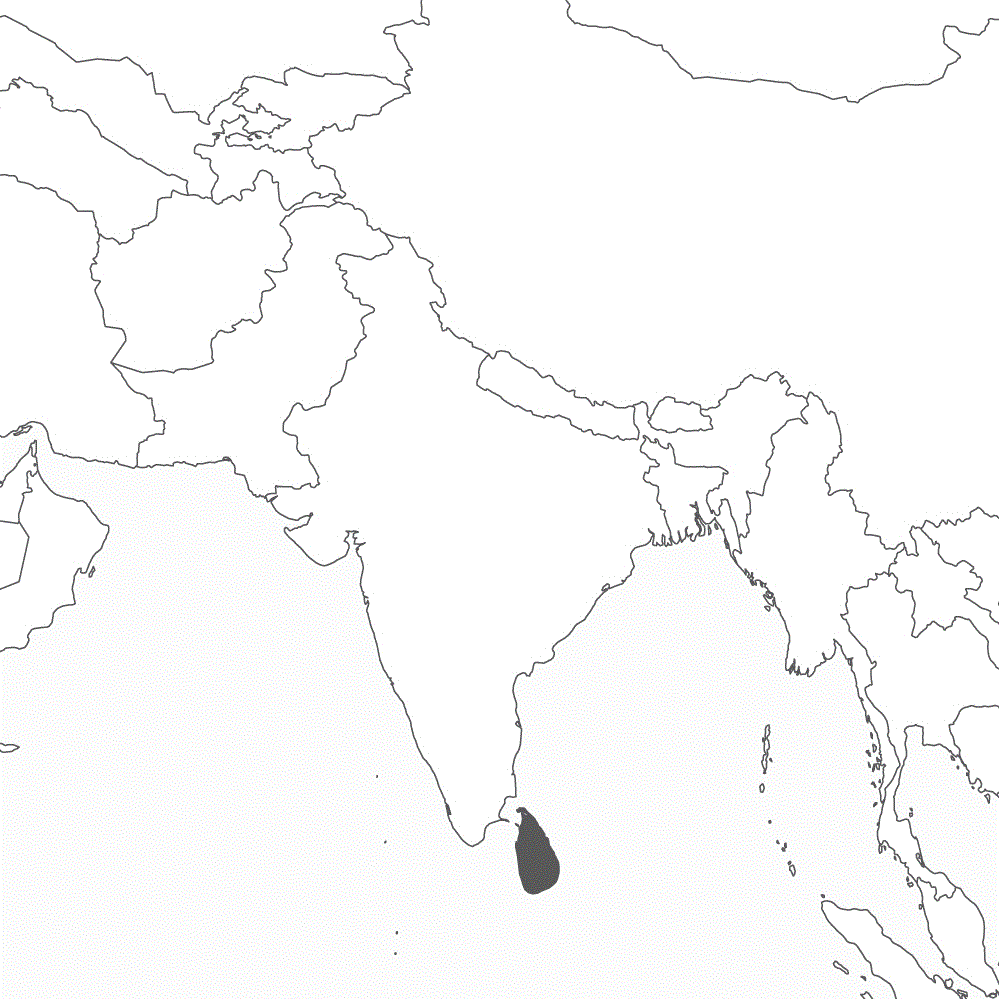Divide and Rule
BERLIN/COLOMBO/JAFFNA The government of Sri Lanka should negotiate with the separatists in rebellion and include the armed rebels in the distribution of relief funds. This was demanded by Heidemarie Wieczorek-Zeul, German minister for development aid, during a visit by delegates of the south Asian separatist front ( ,,Liberation Tigers of Tamil Eelam"/LTTE) to Berlin. The separatists maintain their own army and are seeking to split the territory of Sri Lanka. Reasons for this German demand, directed against the policy of the central government in Colombo, are disagreements over relief efforts destined for the tsunami victims in this heavily devastated island state. Whereas several countries (among them the USA and Great Britain) classify the LTTE secessionist army to be a ,,terrorist organization", the federal government of Germany is instrumentalizing western emergency aid to upgrade the standing of a very controversial organization and its close associations in Sri Lanka. Considering the extent of the promised aid, political advisers in Berlin demand that ,,Germany and Europe"have a greater influence over the ,,Southern and Southeast Asian dynamics of forces".
Following her meeting with Paramu Tamilshevan, leader of the political department of LTTE, Wieczorek-Zeul demanded that Sri Lanka's government and LTTE should ,,decide, in common, on reconstruction and which means should be apportioned to which region". The introduction of a ,,common decision-making mechanism"not only would upgrade the standing of the secessionist army, but would place it on an equal footing with the legal government. The consequences of the demand from Berlin would lead to a crisis of state and could sink Sri Lanka into more turmoil. Important donor states, such as Japan, are insisting on handling their aid through the central administration in Colombo. But complications arise from the fact that the regions, most heavily affected by the tsunami, lie in the north east of the country, a region under the control of LTTE.
Sponsorship
Even though LTTE is classified as a ,,terrorist organization"by both the USA and Great Britain, the German federal government, since quite some time, has been intensifying its contacts to the secessionist army. Already last February, state secretary of the Foreign Ministry, Kerstin Müller, received an LTTE delegation headed by Tamilshelvans. Last week Tamilshelvan met with the head of the foreign ministry's Section 308 (Southern Asia), Bernd Borchardt, and the German ambassador to Sri Lanka, Jürgen Weerth. In Weerth's presence, the German minister of development distributed relief goods, last February, to the population of a village situated in the zone under LTTE influence. Soldiers of Sri Lankas army were forced to vacate the area during the donation ceremony. Wieczorek-Zeul promised ,,sponsorship"by a German commune to the villagers. German organizations have been active on behalf of the Minister of development in various fields for several years in areas under the control of LTTE.
Trashcan
Preceding the Federal Ministry for Economic Cooperation and Development's (BMZ), press conference, scheduled for Monday, concerning the current tsunami aid, there has been an increase in complaints concerning German activities. The press reports that Sri Lanka is being heaped full of useless ,,donations that are literally being dumped". The country is ,,no trashcan"in which you dump ,,all that you don't need, and get a medal pinned on for it."An employee of a relief organization told the daily, Frankfurter Rundschau: ,,There was such an influx of medicine, that the domestic pharmaceutical industry will be out of business for a year". Concerning the ,,sponsorship initiative,"one hears, even in the German embassy in Colombo, that ,,something is being initiated on a political level, that cannot be realized in practice."
Mediator
Berlin's Stiftung Wissenschaft und Politik (Science and Politics Foundation SWP) admonishes that the federal government should use its tsunami relief to increase its political influence in Sri Lanka and Indonesia. ,,At present, Germany and Europe are not playing a role in the dynamic of forces in southern and south east Asia"criticizes SWP. ,,But one must be able to expect more in the future, considering the quantity of relief promised by Germany and Europe". According to these German political advisors, Berlin should act as ,,mediator"in the wars of secession in Indonesia (Aceh) and Sri Lanka. In both instances, the aim should be to give ,,full (...) autonomy"to the separatist militias.
Positions of influence
Political support of the separatists in Aceh carries for Berlin a guarantee for sympathy by a possible future autonomous government, which would have petroleum deposits at its disposal in the Indonesian province. Berlin's partisanship for the LTTE in Sri Lanka is strengthening German control over the peace negotiations now beginning with Colombo. Up to now, these negotiations were moderated mainly by Norway. Simultaneously German foreign policy will be securing positions of influence on the southern flank of the aspiring big power, India, and is taking over former bases of its western competitors.
1) ,,Der Friedensprozess muss wieder in Gang gesetzt werden"; Pressemitteilung des Bundesministeriums für wirtschaftliche Zusammenarbeit und Entwicklung 16.03.2005
2) Thamilchelvan discusses post-tsunami reconstruction with German officials; Tamilnet 17.03.2005
3) German minister gifts boats, engines, nets; TamilNet 22.02.2005
4) Hilfe, die erstickt; Frankfurter Rundschau 12.03.2005
5) see also Partnership and Peace
6) Tsunami-Helfer klagen über Chaos; Frankfurter Allgemeine Zeitung 18.03.2005
7) Politische Auswirkungen der Flutkatastrophe in Indonesien und Sri Lanka; SWP-Aktuell Januar 2005
8) see also In the shadow of disaster
see also Long Term Operation
